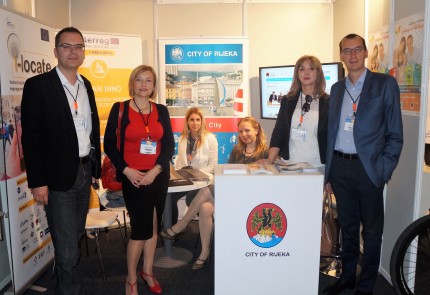URBAN INNO ON 'PATH TO KNOWLEDGE AND INNOVATION'
The 40th edition of MIPRO (International convention on information and communication technology, electronics and microelectronics) was held in Opatija, Croatia, May 22th – 26th 2017. The MIPRO 2017 program consisted 10 conferences, 7 panels, 3 seminars, 2 workshops and several other sessions in which more than 1000 participants and visitors from more than 30 countries were involved. The convention’s tag line - path to knowledge and innovation, along with its 40 year long tradition, profile it as one of the most important ICT event in region. Being stated as ‘an event which creates the transfer between industry, knowledge and public authorities’, MIPRO 2017 gathered stakeholders from major national and international institutions, companies and organizations, including representatives of national and local authorities, universities, faculties, government agencies, public services providers, scientific institutes, and ICT industry. The convention was supported, among many of others, by The Government of the Republic of Croatia, Cities of Rijeka and Opatija, and Universities of Zagreb and Rijeka. General subject of MIPRO 2017 was digital transformation of society, and its impact on innovations in public sector, education, economy, business, and media.
The event also included an Exhibition of equipment, services, technical and technological solutions, in which the City of Rijeka took part with the thematic booth ‘Smart city projects’. Two ongoing projects, promoting the ‘smart city’-concept, along with the institutional Open Data portal, was presented during the exhibition: Interreg CE URBAN INNO, and IEE FIESTA (Families Intelligent Energy Saving Targeted Action). The City of Rijeka, as the Lead partner in the URBAN INNO project, thereby had the opportunity to introduce the project on a general and local level to the convention audiences.
Smart city concept and its related issues was on the highest interests of Rijeka’s booth visitors. Many of them were representatives from higher education and R&D institutions, and requested more information about implemented smart city solutions. Regarding this, the URBAN INNO presentation was focused on providing information about ‘smart’ outputs on local level (i.e. pilot project), and the ‘mechanism’ by which they are going to be created and implemented (i.e. 4UI cluster and citizen participation). Mostly for domestic audiences, the City of Rijeka is even now well recognized as the city that follows the smart city policy, and the projects like URBAN INNO bring the new value on this account.

City of Rijeka team at MIPRO 2017